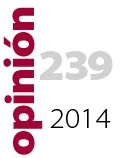#EP2014 results: a Box of Bertie Bott’s Every Flavour Beans

Elina Viilup
Research Fellow, CIDOB
26 May 2014 / Opinión CIDOB, n.º 239 / E-ISSN 2014-0843
After a rollercoaster of an election night the estimations are out. The results are like a Harry Potter books’ Bertie Bott’s Every Flavour Beans – the European voters have given us a wide range of tastes, from surprisingly tasty to the outright ordinary but also some really “bogey-flavoured” ones. Indeed, one can but agree with the declaration of the Commission President Barroso on the 2014 European elections that the outcome reflects the diversity of the Member States, and the unique mix of a pan-European debate (albeit a limited one) with the national agendas.
The tastiest news of the election night must be though that of turnout. For the first time since the 1979 direct elections, the free fall of the participation rate came to a halt at 43. 11 % and even increasing slightly by 0.11% compared to 2009. The miniscule increase may be put down to two combined effects: the economico-political crisis that has affected most of the EU in the recent years and the pan- European campaign led by the six Spitzenkandidaten. The former took the European debate to the streets and the latter made Europe as visible as it has ever been, although the Six only focused on a few countries and their televised debates were of limited distribution (e.g. only 0,9% of the audience saw the 15 May first-ever presidential debate in Spain).
Another surprise of the night was the media revolution that took place on Twitter, across Europe and mostly in English. The exit poll results and analysis flowed in from all the countries of the EU, in time and faster than any of the conventional media outlets, creating one big European conversation. Only radio could participate to a degree and - as a participant succinctly put: Twitter: 12 points, Radio: 10 points, TV: 0 points.
Analysts have long pointed out that the lack of a European media is setting back the creation of a common European political space. Was cross-European media born on this election night? Are we seeing the beginnings of a new, European reality?
The tripe-flavoured candy of the night was undoubtedly the victory of the extreme-right parties in some countries, notably UKIP in the United Kingdom with one third of the vote, French Front National and the Danish People’s Party both with a quarter of the votes cast. The extreme right did well in some other countries, getting outstanding results in Austria, Finland and Hungary. However, and sometimes this is forgotten, they lost out in a number of countries –particularly in the Netherlands but also in Italy, where Matteo Renzi won by a historical landslide. In fact, the extreme right and the eurosceptic parties did not manage to gain substantial ground in the whole of austerity-hit Southern Europe, undermining the learned wisdom that austerity breeds extremism. Even in Greece, where the voters punished the two big parties, the Golden Dawn seems to not have done that well, as Syriza scooped up the protest votes. From Central and Eastern Europe, the extreme right had very good results only in Hungary, where anti-semitic Jobbik appears to become the biggest opposition party.
All in all we are looking at a more fragmented, disarrayed European Parliament that is still an overwhelmingly pro-European one. There is no reason for complacency – far from it - but this is not a mean feat in the current harsh climate. The percentage of the eurosceptics has gone up from around 9% to 13.-15% according to the first estimations, meaning that we are far from the takeover of the European Parliament by the anti-Europeans, yet.
There is an outstanding danger though that is gnawing away at the vulnerable equilibrium, and that is the media’s feeding of the panic and of the perception that the extreme right and anti-EU parties have won these elections – although the numbers do not add up. This may in fact contribute to these parties winning in our collective mind, and also for the contamination of the mainstream European agenda. Further, the victory of the party of Marine Le Pen in France, a country central to the European integration, is undoubtedly a wake-up call to all. We can only hope that the European parties learn the right kind of lessons from this rollercoaster of a night, and that the EP will be ready to take up the challenges it will be facing, starting with the election of the new Commission President.